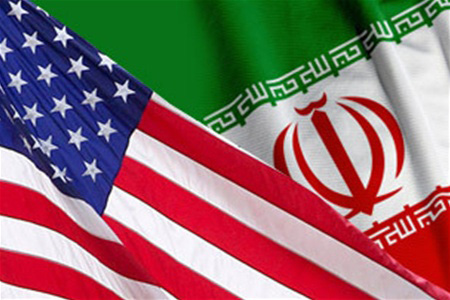Baku, Azerbaijan, Feb. 4
By Umid Niayesh - Trend:
Iran and the United States have many areas to cooperate, believes Edward Haley, a US international affairs expert.
"Tehran and Washington share similar objectives in many areas, such as opposing ISIS (aka IS, ISIL), helping Iraq become a viable, stable country, improving the environment and reducing global warming, and cooperating on these and other issues makes perfect sense," Haley, a W.M. Keck Foundation Professor of International Strategic Studies (emeritus) at Claremont McKenna College, told Trend Feb. 4.
At the same time, Haley believes Iran's following the doctrine of "the West minus the US", which is supported by local conservatives in the Islamic Republic, would not be in favor of Tehran.
The doctrine of "the West minus the US" is an old policy followed, by many states, notably China and the Soviet Union during the Cold War, he said.
In the early 1990s, Iran's Supreme Leader Ali Khamenei put forward a doctrine known as "the West minus the United States". The doctrine, which envisages Iran's cooperation with the entire West excluding the US, has since then been followed by all Iranian administrations. Khamenei even banned any talks with the US beyond Iran's nuclear issue.
Haley added that the mentioned doctrine works well, but there are many reasons why Iran might choose not to follow that course, including: the US offers goods and ideas that are difficult, if not impossible, to find elsewhere; it makes little sense to have no connection to the world's largest economy; and the two parties' have similar objectives, as it was mentioned above.
The expert further touched upon the EU's opportunities in Iranian market following the removal of the sanctions, as Iran's nuclear deal with world powers came into force Jan. 16.
"One would expect the EU to seek market advantage after the removal of the sanctions, especially if the US is prevented by existing statutes, Iranian laws, and a Republican Congress or a new Republican president from trading and investing in Iran," he said.
Saying the EU and the US imposed severe sanctions on Iran in just about every area of economic life during the nuclear stand-off, Haley added the EU was less restrictive regarding foreign investment, and now that UN sanctions have been lifted, it may pursue Iranian trade and investment opportunities.
He further remarked that the Iranian economy is not huge - it is dwarfed by that of France, for example, which has a smaller population - and that should be kept in mind.
Responding to the question whether developing the Iran-EU economic ties also may lead to improving political relations, he said economic ties are not so much causes as symptoms in relations among states, which are driven by calculations of national interest in the broadest sense.
"Improving political ties between the EU and Iran could be accompanied by increases in trade and investment, provided that Iran changes its domestic laws to facilitate foreign investment and trade," Haley explained. "Iran ranks well down in the middle of the pack internationally with regard to competitiveness, for example, and the international community follows suit."
Another issue that Iran has been battling for a long time is the human rights, which is a sensitive issue for the West.
According to Haley, it is possible that human rights issues between Iran and the rest of the world will be treated as "either-or," that is Iran must follow international standards of human rights or be denied trade and investment and much more.
Iran, US have similar objectives, says expert
Iran and the United States have many areas to cooperate, believes Edward Haley, a US international affairs expert.






